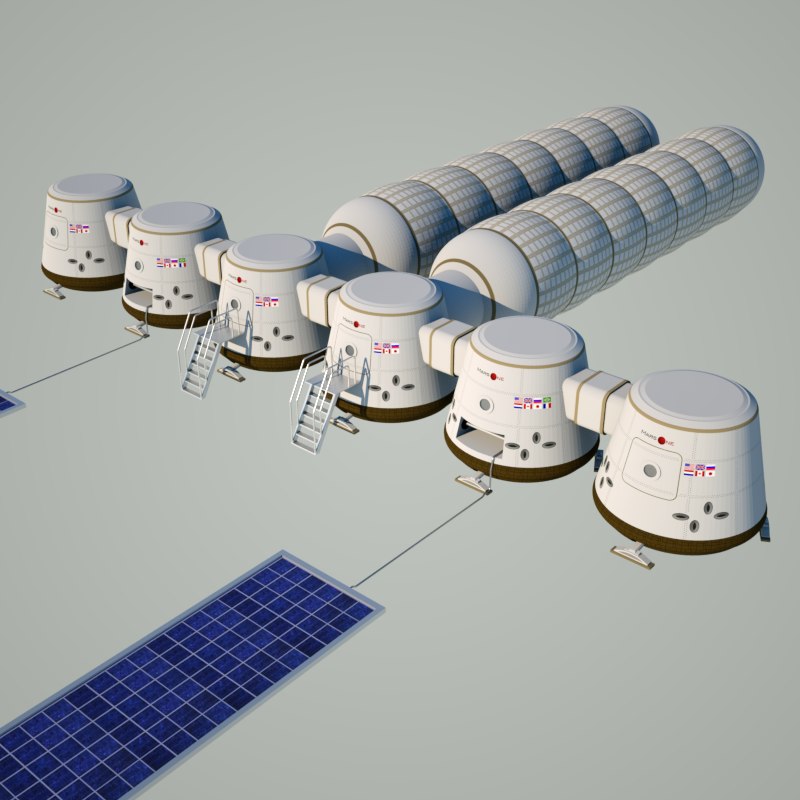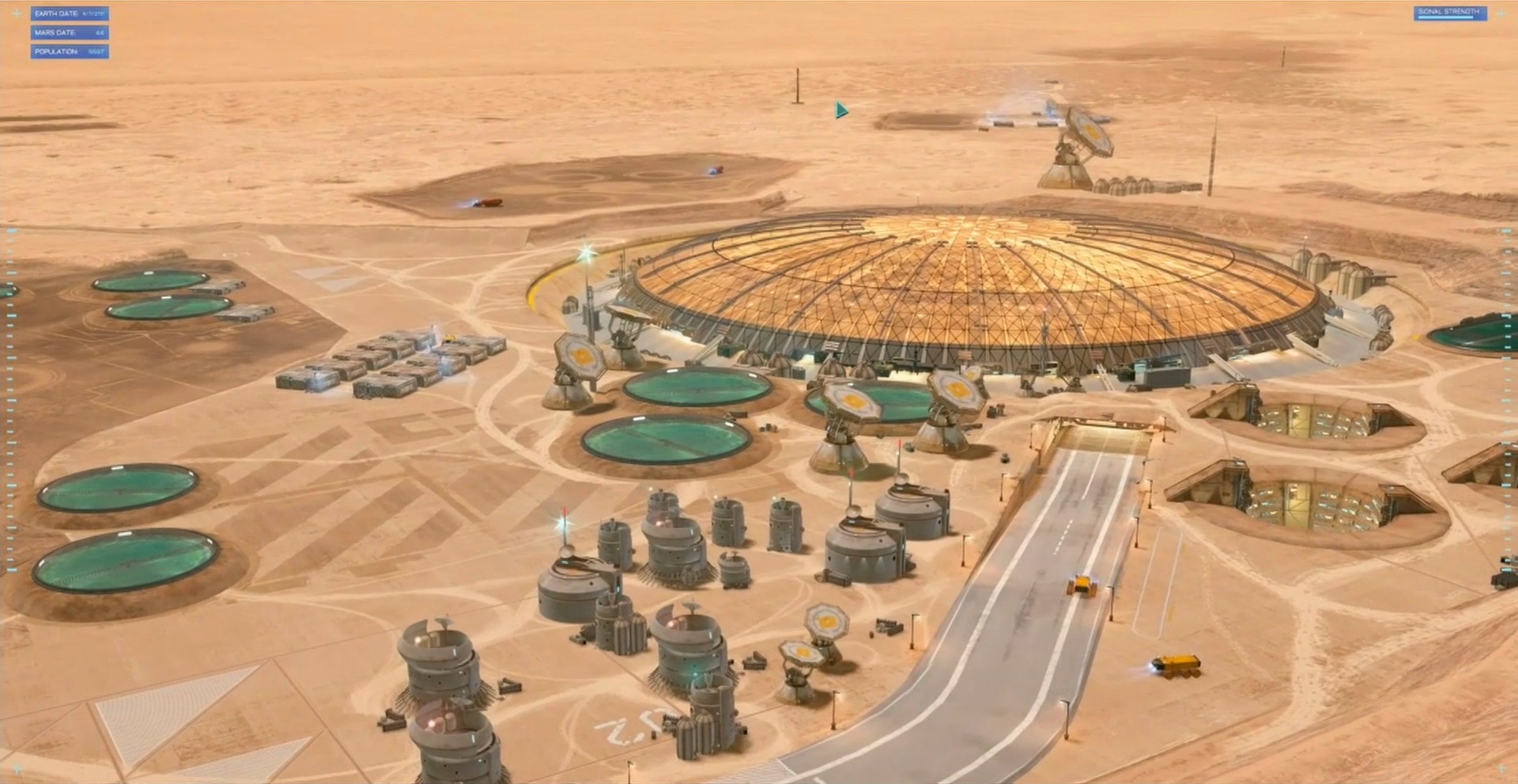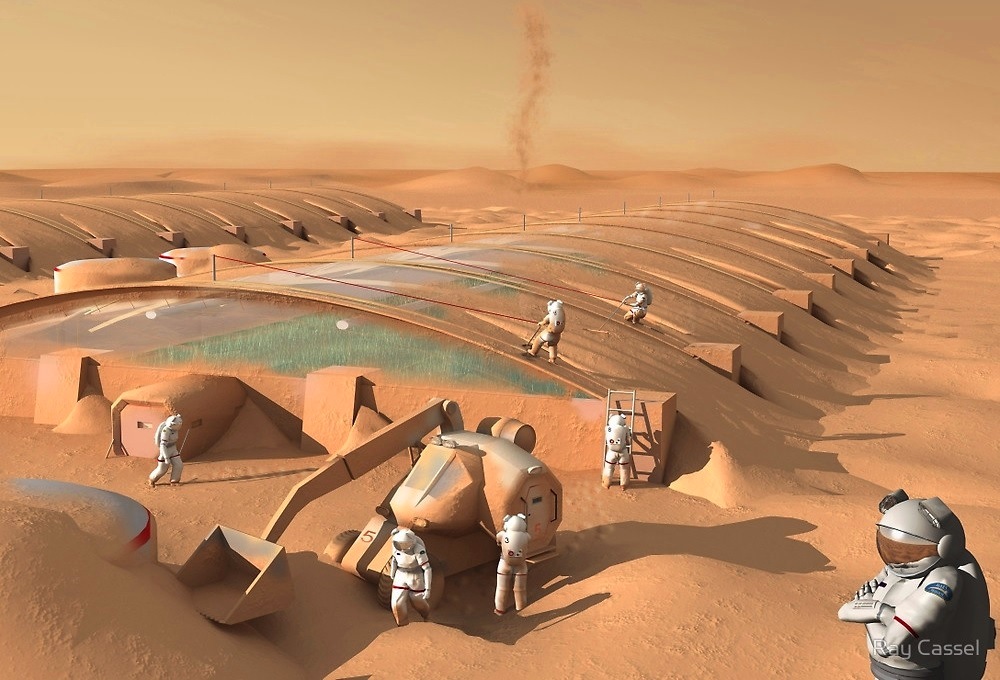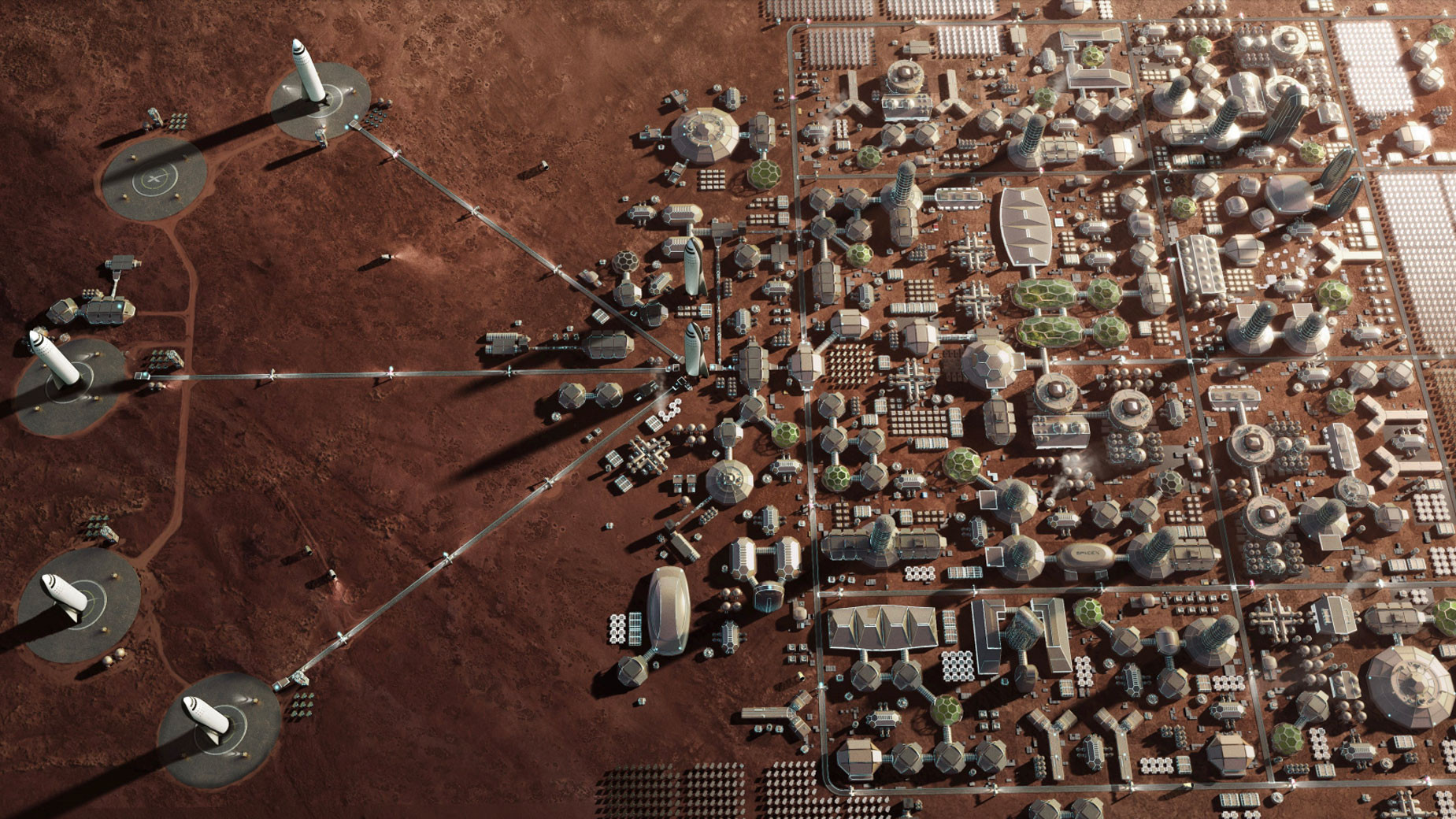Posted on 07/30/2018 3:44:07 PM PDT by LibWhacker
Science fiction writers have long featured terraforming, the process of creating an Earth-like or habitable environment on another planet, in their stories. Scientists themselves have proposed terraforming to enable the long-term colonization of Mars. A solution common to both groups is to release carbon dioxide gas trapped in the Martian surface to thicken the atmosphere and act as a blanket to warm the planet.
However, Mars does not retain enough carbon dioxide that could practically be put back into the atmosphere to warm Mars, according to a new NASA-sponsored study. Transforming the inhospitable Martian environment into a place astronauts could explore without life support is not possible without technology well beyond today’s capabilities.
Although the current Martian atmosphere itself consists mostly of carbon dioxide, it is far too thin and cold to support liquid water, an essential ingredient for life. On Mars, the pressure of the atmosphere is less than one percent of the pressure of Earth’s atmosphere. Any liquid water on the surface would very quickly evaporate or freeze.
Proponents of terraforming Mars propose releasing gases from a variety of sources on the Red Planet to thicken the atmosphere and increase the temperature to the point where liquid water is stable on the surface. These gases are called “greenhouse gases” for their ability to trap heat and warm the climate.
“Carbon dioxide (CO2) and water vapor (H2O) are the only greenhouse gases that are likely to be present on Mars in sufficient abundance to provide any significant greenhouse warming,” said Bruce Jakosky of the University of Colorado, Boulder, lead author of the study appearing in Nature Astronomy July 30.
Although studies investigating the possibility of terraforming Mars have been made before, the new result takes advantage of about 20 years of additional spacecraft observations of Mars. “These data have provided substantial new information on the history of easily vaporized (volatile) materials like CO2 and H2O on the planet, the abundance of volatiles locked up on and below the surface, and the loss of gas from the atmosphere to space,” said co-author Christopher Edwards of Northern Arizona University, Flagstaff, Arizona.
The researchers analyzed the abundance of carbon-bearing minerals and the occurrence of CO2 in polar ice using data from NASA’s Mars Reconnaissance Orbiter and Mars Odyssey spacecraft, and used data on the loss of the Martian atmosphere to space by NASA’s MAVEN (Mars Atmosphere and Volatile Evolution) spacecraft.
“Our results suggest that there is not enough CO2 remaining on Mars to provide significant greenhouse warming were the gas to be put into the atmosphere; in addition, most of the CO2 gas is not accessible and could not be readily mobilized. As a result, terraforming Mars is not possible using present-day technology,” said Jakosky.
Although Mars has significant quantities of water ice that could be used to create water vapor, previous analyses show that water cannot provide significant warming by itself; temperatures do not allow enough water to persist as vapor without first having significant warming by CO2, according to the team. Also, while other gases such as the introduction of chloroflorocarbons or other fluorine-based compounds have been proposed to raise the atmospheric temperature, these gases are short-lived and would require large-scale manufacturing processes, so they were not considered in the current study.
The atmospheric pressure on Mars is around 0.6 percent of Earth’s. With Mars being further away from the Sun, researchers estimate a CO2 pressure similar to Earth’s total atmospheric pressure is needed to raise temperatures enough to allow for stable liquid water. The most accessible source is CO2 in the polar ice caps; it could be vaporized by spreading dust on it to absorb more solar radiation or by using explosives. However, vaporizing the ice caps would only contribute enough CO2 to double the Martian pressure to 1.2 percent of Earth’s, according to the new analysis.
Another source is CO2 attached to dust particles in Martian soil, which could be heated to release the gas. The researchers estimate that heating the soil could provide up to 4 percent of the needed pressure. A third source is carbon locked in mineral deposits. Using the recent NASA spacecraft observations of mineral deposits, the team estimates the most plausible amount will yield less than 5 percent of the required pressure, depending on how extensive deposits buried close to the surface may be. Just using the deposits near the surface would require extensive strip mining, and going after all the CO2 attached to dust particles would require strip mining the entire planet to a depth of around 100 yards. Even CO2 trapped in water-ice molecule structures, should such “clathrates” exist on Mars, would likely contribute less than 5 percent of the required pressure, according to the team.
Carbon-bearing minerals buried deep in the Martian crust might hold enough CO2 to reach the required pressure, but the extent of these deep deposits is unknown, not evidenced by orbital data, and recovering them with current technology is extremely energy intensive, requiring temperatures above 300 degrees Celsius (over 572 degrees Fahrenheit). Shallow carbon-bearing minerals are not sufficiently abundant to contribute significantly to greenhouse warming, and also require the same intense processing.
Although the surface of Mars is inhospitable to known forms of life today, features that resemble dry riverbeds and mineral deposits that only form in the presence of liquid water provide evidence that, in the distant past, the Martian climate supported liquid water at the surface. But solar radiation and solar wind can remove both water vapor and CO2 from the Martian atmosphere. Both MAVEN and the European Space Agency’s Mars Express missions indicate that the majority of Mars’ ancient, potentially habitable atmosphere has been lost to space, stripped away by solar wind and radiation. Of course, once this happens, that water and CO2 are gone forever. Even if this loss were prevented somehow, allowing the atmosphere to build up slowly from outgassing by geologic activity, current outgassing is extremely low; it would take about 10 million years just to double Mars’ current atmosphere, according to the team.
Another idea is to import volatiles by redirecting comets and asteroids to hit Mars. However, the team’s calculations reveal that many thousands would be required; again, not very practical.
Taken together, the results indicate that terraforming Mars cannot be done with currently available technology. Any such efforts have to be very far into the future.
This research was supported in part by NASA through the MAVEN and Mars Odyssey THEMIS (Thermal Emission Imaging System) projects.
Bill Steigerwald / Nancy Jones
NASA Goddard Space Flight Center, Greenbelt, Maryland
301-286-8955 / 301-286-0039
william.a.steigerwald@nasa.gov / nancy.n.jones@nasa.gov
Master Image Caption: This is an artist's model of an early Mars — billions of years ago — which may have had oceans and a thicker atmosphere. It was created by filling Mars' lower altitudes with water and adding cloud cover. The locations for the ancient ocean are based on current altitudes and do not reflect the actual ancient topography. It can be downloaded here: https://svs.gsfc.nasa.gov/13016
Credit: NASA/MAVEN/Lunar and Planetary Institute
Probably cannot be done anyway. Mars has almost no magnetic field. This is probably why it lost most if it’s atmosphere, and cannot host much of a new one.
hey, i am allowed to dream
and besides, if Islam destroys Europe and USA, there won’t be much left worth living for on earth
a few space colonies might give us a future, chance(s) to defeat Islam (or leave it behind!) and build decent civilizations again
What gave you the first clue, Sherlock?
Terraforming is for TERRA - EARTH! Mars is not Earth. Different gravity, amount of sunlight, atmosphere, soil, water supply.
Using astronauts’ poop to fertilize your plants is going to get you killed.

As already stated without a magnetic field, the solar wind will blow the atmosphere away, as it has for millions of years. All this stuff is a liberal pipe dream.
But even if the temperature could be increased and enough oxygen could somehow be produced, Martian gravity is not sufficiently strong to retain enough oxygen for a breathable atmosphere. And since Mars doesn't have a magnetic field like Earth, cosmic and solar radiation would attack and contribute to the destruction of any atmosphere that is generated.
Earth, with its 1 g gravititational force at the surface, and its magnetic field protecting the Earth's atmosphere can retain oxygen. Mars has only 38% the gravity of Earth.
All the libs are like, “If Obama were still president we’d be terraforming Mars. Remember all the funding he gave to alternative sources of energy.”
Idiocy, unless they have a solution to restart the magnetic field, ala “The Core”...
She’s dead Jim. No different than Earth, there’s nothing us little ol humans can do about it.
Who thought it was possible? Can we drag ice asteroids out of their orbits and toss them at Mars?
This is good start coming from NASA. Yep they are admitting that it is simply too hard for man to change the climate of a planet. Wait ...
A new home for Obama's muslim astronauts.
Interesting.
It is probably more valuable to find ways to generate limited atmospheres economically for enclosed spaces, as well as economical methods to construct such enclosed spaces - such as buildings, domes, and sealed off caverns.
That is the more pressing engineering question. Backward planning from the earliest possible human bases on Mars (possibly next decade, growing more likely the decade after), the chemical processes must be chosen, so that equipment and supplies can be calculated into the space and weight budget for transport.
Terraforming can wait until technology develops.
The ancient Martians were at war with the fifth planet for thousands of years. It was a low level war, but peace was never considered. The Martians developed a super weapon, powered by energy stored in the planet’s molten core. Mars fired the weapon, destroyed the fifth planet, the planetary debris forming the asteroid belt. On Mars, the core stopped circulated, its magnetic field disappeared. Within a few generations, solar winds had blown away the Martian atmosphere, and with it, the Martian Civilization.

Under Dome Agriculture/Aquaculture, with underground habitation and industry, to source more requirements locally.

Clearing dust from domes and solar panels will be needed

Elon Musk proposes that initial bases develop the essential infrastructure and services, that enable more and varied activities to move in over time.

A better be would be terraforming Venus.
No mention that Mars’ core is not molten thus no magnetic field which is what the atmosphere would need to protect it from solar winds.
Benjamin Franklin paraphrase:
We gave Mars an atmosphere, if Mars can keep it.
I would question Mars’ ability to hold a stable earthlike atmosphere. Its size and mass make it the reason for what it is right now.
Terraforming. Sigh. It’s probably an old word, but when I hear it, I think of sci-fy movies. Makes me think that the lives and psyches of younger people coming up, revolve around improbable movies, t.v., and video games. I know that older generations are always shocked by the younger ones, but I don’t think there’s ever been a time, in American history, at least, when the next generation has been so lied to and indoctrinated. They honestly don’t know the truth, and they’ve sold so many lies, regarding so many topics, it’s frightening. I used to wonder how things could get so horrible as the book of Revelation describes. I don’t wonder any more. Pray without ceasing.
Disclaimer: Opinions posted on Free Republic are those of the individual posters and do not necessarily represent the opinion of Free Republic or its management. All materials posted herein are protected by copyright law and the exemption for fair use of copyrighted works.